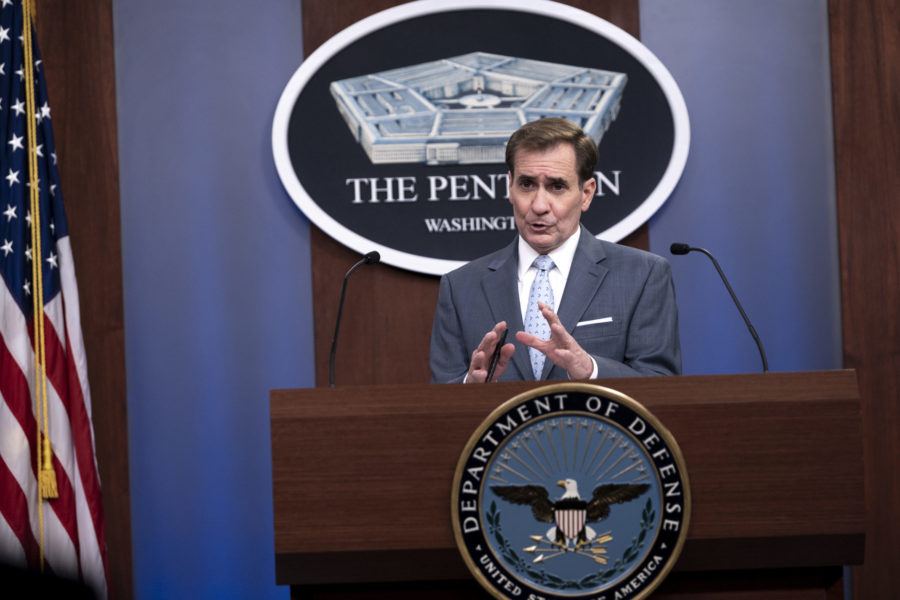The state news agency of North Korea confirmed the successful tests Sept. 11-12 of long-range cruise missiles it claims can carry a nuclear warhead, prompting the Pentagon to condemn the north’s military program.
“The activity itself certainly highlights the [Democratic People’s Republic of Korea’s] continued focus on developing its military program and the threats that it continues to pose to its neighbors and the international community,” Pentagon spokesman John F. Kirby said at a Sept. 13 press briefing.
Kirby said his comments were based on press reports and were not a Defense Department confirmation that the tests took place.
The official North Korean news release called the long-range cruise missile a “strategic weapon,” necessary for deterrence, and said it hit targets 1,500 kilometers (932 miles) away. Although that’s far from a threat to the U.S. homeland, it is easily within reach of U.S. forces in the Indo-Pacific region, especially those in South Korea and Japan.
It is unclear whether United Nations sanctions on North Korea’s nuclear and ballistic missile programs would prohibit the types of tests that took place over the weekend.
Kirby said cruise missiles typically travel shorter distances with a smaller payload than longer-range intercontinental ballistic missiles that U.S. missile defense systems are prepared to intercept from North Korea.
“A ballistic missile can often travel much longer distances at greater speeds than a cruise missile,” he said.
However, cruise missiles can be a powerful threat to regional interests.
“They can be much more precise in their targeting because they’re multi-directional,” Kirby said. “A cruise missile basically flies like an airplane, an un-piloted airplane, and so it can zig, it can zag, it can can do all kinds of different maneuvers before it hits its target.”
U.S. Indo-Pacific Command released a statement following the alleged DPRK test Sept. 12 saying it would consult with allies and partners and continue to monitor the situation.
“The U.S. commitment to the defense of the Republic of Korea and Japan remains ironclad,” the statement read.
